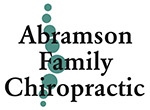Treating Frozen Shoulder
Adhesive capsulitis, also known as frozen shoulder, is described as a painful restriction of the shoulder’s range of motion. Among a group of 20 adhesive capsulitis patients, those who received a multimodal treatment plan that included specific exercises, heat therapy, and manual therapies—an approach that patients may encounter in a chiropractic setting—reported significant improvements with respect to pain, function, and range of motion. Cureus, January 2024
Cardiac Comorbidities Can Worsen Knee Replacement Outcomes
Among a sample of more than 380,000 patients who underwent total knee arthroplasty (TKA), researchers observed that those with preexisting cardiac comorbidities (such as congestive heart failure, coronary artery disease, valvular dysfunction, and arrhythmia) have an elevated risk for adverse outcomes including a longer hospital stay, heart attack, acute kidney injury, transfusion, thromboembolic events, and infection. The authors conclude, “As our use of TKA rises, a lower threshold for preoperative cardiology referral in older individuals and early preoperative counseling/intervention in those with known cardiac disease may be necessary to reduce adverse outcomes.” Clinics in Orthopedic Surgery, April 2024
Vitamin C May Benefit Rheumatoid Arthritis Patients
Rheumatoid arthritis is a chronic inflammatory disorder that usually affects the small joints in the hands and feet. A recent animal study found that a vitamin C supplement given to mice with rheumatoid arthritis stimulated changes in the gut microbiota that led to a reduction in several inflammatory biomarkers. The findings suggest that vitamin C has a role in the management of rheumatoid arthritis. Bioscience Trends, April 2024
Just an Extra 1,500 Steps a Day...
For patients at elevated risk for heart disease, a recent study found that increasing one’s daily step count by 1,500 steps can reduce the risk for cardiovascular disease-related death by 10%. Circulation, April 2024
Spending Time in Nature Benefits Kids’ Mental Health
Researchers from the Frank Porter Graham Child Development Institute at the University of North Carolina report that the more green space (parks, trails, and other nature settings) within .75 miles of a young child’s home, the less likely they’ll experience symptoms of a mood disorder by age five. JAMA Network Open, April 2024
Even Small Vision Issues Lead to Worse Grades
To underscore the importance of regular eye exams, a recent study found that children with nearsighted vision that remains uncorrected receive lower grades than their peers who wear glasses or do not have vision problems. BMC Pediatrics, March 2024
Quote: “Everybody’s gotta learn, nobody’s born knowing.” ~ Harper Lee
This information should not be substituted for medical or chiropractic advice. Any and all health care concerns, decisions, and actions must be done through the advice and counsel of a health care professional who is familiar with your updated medical history.
